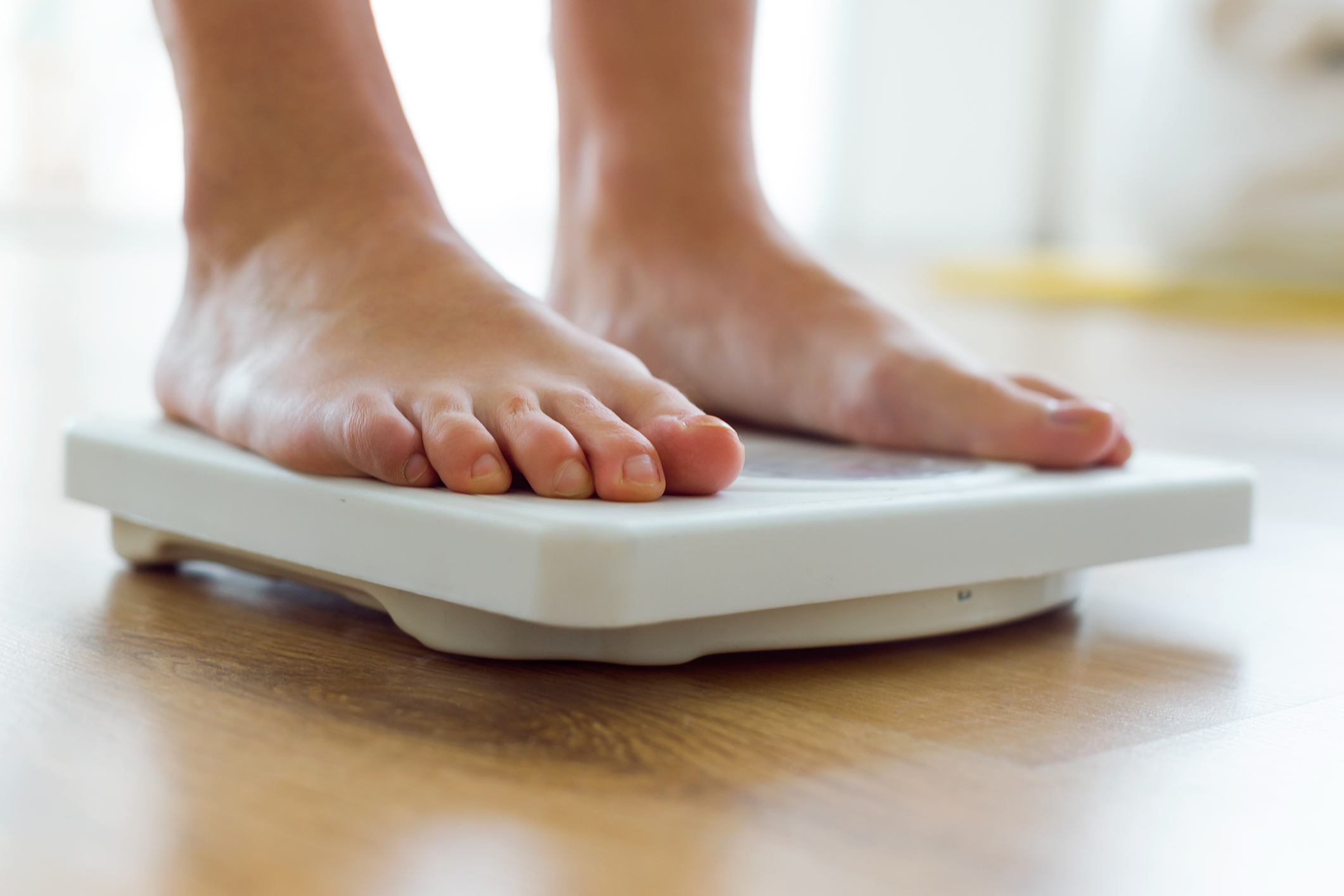A Note for Our Readers
I no longer offer 1:1 nutrition or functional health services, and I’m not accepting new clients for digestive or hormone-related support. This blog remains published as a helpful resource for women navigating these health challenges — especially those looking for clarity around their symptoms and well-being.
Today, my work is dedicated to helping Health Coaches, Practitioners, and Wellness Entrepreneurs grow profitable, sustainable businesses through private practice coaching and mentorship.
If you’re a wellness professional who’s ready to grow a thriving, values-aligned business without burning out, click here to learn more about my coaching programs.
And if you’re ready to build the kind of online health business that nourishes you financially, emotionally, and energetically, check out my signature program, the Nourished Business Accelerator™.
Thank you for being here and I wish you the best on your journey.
If you train with any level of frequency and intensity, you’ve probably heard the term overtraining before. So what is overtraining, and how do you know if you’re overdoing exercise? This article will answer that question.
But first, let’s talk about why overtraining is becoming more of an issue than it ever was before.
If you’re dedicated to your fitness, your training can become like a religious practice. It takes dedication, consistency and hard work to reach high-level fitness goals.
The pride and excitement that comes from setting a new PR after weeks, months, or even years of training can be exhilarating.
Not to mention, the physical transformation that comes from a consistent routine can be exciting and empowering.
But as you may know, the thrill of hitting your peak performance or body composition goals is fleeting. It often leaves you even hungrier for more gains, more fat loss, and more achievement overall.
Pushing yourself with a more intense training regimen seems like the obvious course of action when you set bigger goals to reach.
After all, no pain no gain, right?
Well, maybe not.

No Pain Rest, No Gain
In the elite fitness world, every athlete is expected to give 110%, because 100% just isn’t going to cut it. Even Nike tells athletes to “just do it”. Some people believe this means just do it even when your body says to stop.
The predominant belief in the fitness world is the more you train, the better your chances of making gains or crushing the competition.
Even in recreational athletics, many women believe that “more is more” when it comes to reaching their fitness goals.
I’ve definitely been in the “more is more” mindset in the past when I was training 5-6 days per week or spending 2 hours at the gym on a regular basis.
But More Training is Not Always Better.
In fact, overtraining can lead to huge setbacks in both performance and overall health.
It’s easy to fall into a bad habit of overtraining when the Nikes and Boot Camps of the world are telling you to push through the pain to find success.
But by pushing through too much pain, you actually seriously impair your gains.
So how can you tell the difference between pushing yourself and going too hard in the gym?
Your body tells you when you’re pushing yourself too hard at the gym with a number of signs and symptoms.
It’s crucial to listen to how your body is responding to training. That way you can make the proper adjustments to your training regimen, and continue making progress without hurting yourself.
In this article, I’ll share the 9 most common signs and symptoms associated with overtraining.
By recognizing these signs, you’ll know better when you’re overdoing it at the gym.
First, let’s discuss the important difference between “functional overreaching” (which is good) and “nonfunctional overreaching” or “overtraining” (which is bad).

“Functional Overreaching” versus “Overtraining”
In order to make noticeable progress in the gym, training beyond capacity is required. This type of training often causes us to feel decently sore 24-48 hours later.
Soreness after a tough workout is a symptom of the oxidative stress and muscle damage that occurs during exercise. This might sound like a bad thing, but in appropriate amounts, it’s actually necessary for physical progress and strength gains.
Effective training creates inflammation in your muscles and body that requires your body to adapt to better withstand that physical stress.
This inflammation drives muscle adaptation and growth by ramping up our bodies production of our own antioxidant defense system.
Exercise-induced stress is a clear example of “hormesis“. In hormesis, a small amount of stress (inflammation) can stimulate a bigger positive adaptation (muscle growth).
But, this positive adaptation is dose-dependent. Too much stress from training over the long term can have a detrimental effect on the muscles and the body in general.
Aiming for Functional Overreaching
“Functional overreaching” occurs when intensified training leads to a short term decline in performance (acute fatigue). This is followed by a “supercompensation effect” where an athlete experiences a boost in performance when given proper recovery.
Functional overreaching means respecting the balance between training and recovery. In functional overreaching, recovery takes a few days or even a few weeks of rest to see the full benefits of strength and power gains.

You can fall into a state of nonfunctional overreaching if you continue your excessive training without adequate recovery and regeneration. This results in a stalled and eventual decreased performance.
Recovery from nonfunctional overreaching can take several weeks or even months to resolve.
Negative systemic side effects from nonfunctional overreaching usually start to manifest over time. These side effects include psychological disturbances and hormone disturbances.
Chronic nonfunctional overreaching can lead to overtraining syndrome, which is characterized by prolonged maladaptation to the stress of training.
Consistent overtraining leads to long-term impairments in performance capacity.
This loss of performance is usually accompanied by dysfunction in several biological, neurochemical, and hormonal regulation mechanisms.
In nonfunctional overreaching and overtraining, the athlete has lost respect for the balance between training and recovery.
Accumulated excessive stress with inadequate recovery leads to physical and psychological impairment, and often a loss of performance. It frequently leads to serious injury as well.
But in functional overreaching, proper recovery turns the hormetic stress of training into performance gains. And that’s what we want!
Finding this balance between training and recovery can be tricky.
The “more is better” training mentality that fuels the fitness community is pervasive.
But training smarter – not harder – is the key to performance gains.
9 Signs and Symptoms of Overtraining
Recognizing how your body is responding to intense training is crucial to finding your training sweet spot.
If you’re feeling any of the following 9 signs of overtraining, you need to take a break from how hard you’re working and re-evaluate your training regimen. This is a non-negotiable for both health AND performance.
Remember, you’re not winning any prizes by working your body into the ground.
Read on and see if you resonate with any of these 9 signs and symptoms of overtraining!

1. You’re Feeling Burnt Out and Exhausted
Acute fatigue after an intense workout is normal. But you should never feel chronically worn down by training.
A well-executed training program should energize and invigorate you, not leave you with crushing fatigue.
The inflammatory process triggered by overtraining increases the production of inflammatory cytokines. These cytokines are cell signaling molecules that stimulate the movement of cells towards sites of inflammation, trauma, and infection.
Cytokines are potent activators of the HPA axis, our body’s stress management system. Chronic activation of the HPA axis causes alterations in cortisol, adrenocorticotropic hormone, testosterone, and other hormone levels in overtrained athletes.
The “fight or flight” stress response produced by our HPA axis is designed to save your life in acute times of stress, like when you’re being chased by a predator. It’s also activated during a tough workout that gets your adrenaline pumping.
But chronic activation of your stress response eventually causes unhealthy changes in your physical and mental health.
Increased unbound blood tryptophan levels caused by overtraining is also associated with fatigue in athletes. Tryptophan competes with branch chained amino acids for entry into the brain.
High levels of oxidative stress from overtraining will decrease branched chain amino acids in the blood and favor the entry of tryptophan in the brain.
Researchers speculate that more tryptophan causes high serotonin production in the brain, which can cause feelings of fatigue.
I would also speculate that this is an adaptive response. The brain is trying to preserve the body by telling us our body is tired and needs rest.

2. You Keep Getting Sick
These increases in cytokines triggered by excess tissue damage lead to immune system dysfunction and more frequent infections in overtrained athletes.
Overtraining is associated with increased incidents and severity of upper respiratory tract infections.
Immunosuppression in overtrained athletes is the result of certain biological shifts that result from excessive training.
First, tissue damage promotes an increase of humoral immunity and the suppression of cell-mediated immunity. Cellular immunity protects the body by activating cytotoxic T cells, natural killer cells, and macrophages that destroy pathogens in the body.
Would you like to save this post?
Your email address is 100% safe and will never be sent spam.
The down-regulation of this cell-mediated immunity in overtrained athletes leaves them more susceptible to pathogens.
Second, a chronic inflammatory response also raises cortisol levels, which lowers the number of white blood cells in your blood.
White blood cells are immune cells that travel through the blood and protect us from foreign invaders and pathogens.
A low white blood cell count increases your risk of infection.
Increased levels of stress hormones from excessive exercise may promote less mature white blood cells to be released into circulation from the bone marrow.
Third, depleted glutamine levels in overtrained athletes can suppress immunity. Our bodies need glutamine to make pro-inflammatory proteins. Overtraining increases the production of these proteins.
Glutamine is essential for immune cell function, and low levels could disturb immune function.
If you have frequent and/or severe colds, you may be training too hard and suppressing your immune system.

3. You Struggle Falling or Staying Asleep
Struggling to fall asleep is a common symptom of overtraining. Waking up frequently throughout the night can also be a result of overdoing it at the gym.
Of course, this insomnia is further exacerbated if you’re undereating calories and/or carbs for the type of training you’re doing. But for now, let’s primarily focus on how your training might cause sleep disturbances.
The activation of the HPA axis is a primary reason for exercise-induced insomnia. Activation of the HPA axis leads to an increased release of corticotropin-releasing hormone (CRH) and norepinephrine.
Elevated levels of CRH and norepinephrine may cause sleep disturbances, including primary insomnia. HPA axis hyperactivity can also lead to sleep fragmentation, decreased sleep quality and shortened sleep time.
Paying attention to sleep patterns following intensified training can help you determine if your training is appropriate.
If you’re struggling with disrupted sleep or waking up feeling unrefreshed in the morning, consider if your training regimen is contributing to that issue.

4. You’re Performing Poorly or Always Hurt
One of the obvious and easiest signs that you are overtraining is when your performance has plateaued or even declined.
Competitive athletes need to beware of the “more is better” assumption when their performance is stagnant or declining.
More training exacerbates these performance deficits, and they only resolve with adequate rest and recovery.
To understand how performance can start to decline in overtraining, I would like to revisit the concept of hormesis. Like I mentioned above, the benefits of training are dose-dependent.
In functional overreaching, you are promoting stress and oxidative damage in the body, but the body is able to respond with a much bigger increase in antioxidant defenses and positive adaptation like muscle growth.
In hormesis, a small dose of overreaching with proper rest will yield a net benefit. But if you overtrain, oxidants and inflammation will overwhelm your antioxidant defense system and prevent muscle adaptation and growth.
In fact, overtrained athletes have lower levels of antioxidants in their blood compared to healthy athletes.
Overtraining can lead to excessive muscle damage that explains not only a decrease in performance capacity but also the increased risk of injuries. Lower levels of antioxidants will also lead to a much slower recovery from injury.
If you’ve had a decline in performance or an increase in injury after intensifying your training, then you probably need to back off on the frequency and intensity of your training.

5. Your Mood Swings Are Crazy
Overtraining can frequently cause depression and worsening moods. Behavioral and psychological changes seen in overtraining are attributed to the increase of inflammatory cytokines.
Proinflammatory IL-1b and TNF-α act produced in overtraining can cause inflammation in the brain leading to symptoms like depression, anxiety, and anger. This concept is known as the cytokine theory of depression.
Overtraining could also cause mood disturbances due to changes in neurotransmitter and hormone levels. As I mentioned above, the increase in unbound tryptophan can increase the levels of serotonin, which can affect mood and feelings of fatigue.
When exercise and training are managed properly, they should boost your mood and ease depression/anxiety. But, overtraining can have quite the opposite effect.
6. Your Hair, Skin, and Nails Look Terrible
These symptoms are all related to low thyroid hormone production that can occur in overtrained athletes. Thyroid dysfunction is frequently overlooked in athletes, especially in athletes who aren’t overweight.
We already discussed how inflammatory cytokines chronically activate the HPA axis in athletes. This activation also causes a down-regulation of thyroid hormone production.
Inflammatory cytokines and adrenal stress hormones inhibit the conversion of inactive thyroid hormone (T4) into the active form (T3).
Cytokines have also been shown to decrease the sensitivity of the thyroid receptor. With thyroid resistance, the thyroid hormones are sending messages to the cells, but the cells can’t hear the message.
If you notice a decline in skin, nail or hair health, it can be indicative that your thyroid is being suppressed by excessive training.

7. You Have Low Libido and/or Period Irregularities
Overtraining can result in a much lower sex drive and period irregularities. Stress and cytokines from excessive training negatively affect libido by downregulating sex hormones.
Reproduction is an expensive biological process. It takes an enormous amount of energy and time to support the growth of a baby both in utero and in the real world.
Pushing your body too hard can push your body into “survival mode” and resources become limited. So, the body starts to shut down all non-essential systems. The reproductive system is usually the first to shut down during this time.
Low testosterone levels have even been proposed as a possible diagnostic tool for overtraining syndrome since it is so prevalent when athletes push themselves too far.
For women, period irregularities can indicate that their training may be negatively affecting their hormones. Under-recovering from your workouts is a major cause of low estrogen, low progesterone, and a missing or irregular period.
Learn how athletic women can get a period back WITHOUT birth control in my new FREE TRAINING!

8. Your Gut Feels Awful
Diarrhea and other bowel dysfunction are common with endurance athletes. The “runner’s trots” is a cheeky nickname for diarrhea that is well-known in the running community.
Just because bowel issues in elite athletes is prevalent, does not make it normal or healthy.
Strenuous exercise diverts blood and nutrients away from the gut to the muscles. The stress response driven by inflammation and cytokine release further diverts blood flow, nutrients, and nervous input into the gut.
As a result, overtraining can impair digestion and the integrity of the gut lining.
Poor digestion can lead to poor absorption and nutrient deficiencies. With an impaired gut barrier, you also run the risk of increased food sensitivities and intestinal inflammation.
Women who are chronically overtraining often develop gut issues that are often driven by SIBO or other gut dysbiosis issues. I’ve seen this in my work with clients more often than I can count.
If you’re training hard and your gut is consistently functioning poorly, first cut back on your exercise.
If that doesn’t help, you can always get gut testing done to see what might be out of balance.

9. You’re Gaining or Losing Weight (And Your Diet Hasn’t Changed)
This issue can be especially problematic for women who are gaining weight unintentionally since that weight gain can then lead to even more working out.
Rather than pulling back and exercising less, these women try to cram more training into their already overloaded schedule, and they end up doing more harm than good.
And it’s difficult to believe that overtraining could lead to weight gain.
But the hormonal and inflammatory effects of overtraining can lead the body to lower thyroid function, crank out stress hormones, ramp up inflammatory cytokines, and create an overall environment that favors fat storage.
After all, body fat is one of our body’s favorite ways of buffering us against long term stress.
The more stress we pile on our bodies, the more our bodies respond with protective (but usually unwanted) fat storage.
Of course, there are also women who struggle to keep weight on when they’re training excessively. Being unhealthily underweight can lead to hormonal issues like amenorrhea, and cause many of the health issues associated with that condition.
Ultimately, if you’re training hard and seeing unwanted changes in your weight, you should consider the possibility that your excessive exercise habit is the root cause of that change, assuming your diet is consistent.
Is Your Training Causing Bingeing?
As an aside, sometimes women who train excessively also end up eating in a disordered way. Hard training sessions can often lead to binges when your nutrition isn’t lined up with your training routine.
If you’ve ever come home from a tough workout with an insatiable hunger and ended up eating way more food than was necessary to recover from the workout, your training could be driving some of this uncontrollable hunger. (I’ve been there before!)
So if you’re gaining unwanted weight, or struggling with binges on your training days, consider how your training might be driving unhealthy eating habits. Try taking your workouts down a notch and see if your food intake normalizes as well.
Bottom Line? Try Training Less
To feel your best and achieve your fitness goals, you must respect the balance between training and recovery. Listening to your body is key to determine if you are tolerating your training routine.
If you find yourself feeling burnt out and symptomatic after training, your body is telling you to slow down and rest. Take a few days or even a few weeks off from your normal routine.
Try dropping your workout frequency down to 2-4 days per week. You might be surprised to see how well your body responds! Personally, I only train 2-3 days per week and my body has never performed better (or looked better, frankly.)
And always remember…
No REST, no gain!
Now I’d LOVE to hear from you…
Have you ever reduced your training regimen and seen an even better performance or body composition changes by exercising less?
Share your story in the comments below!
This post may contain affiliate links. If you click on a link and make a purchase, I may receive a small commission.

+ show Comments
- Hide Comments
add a comment